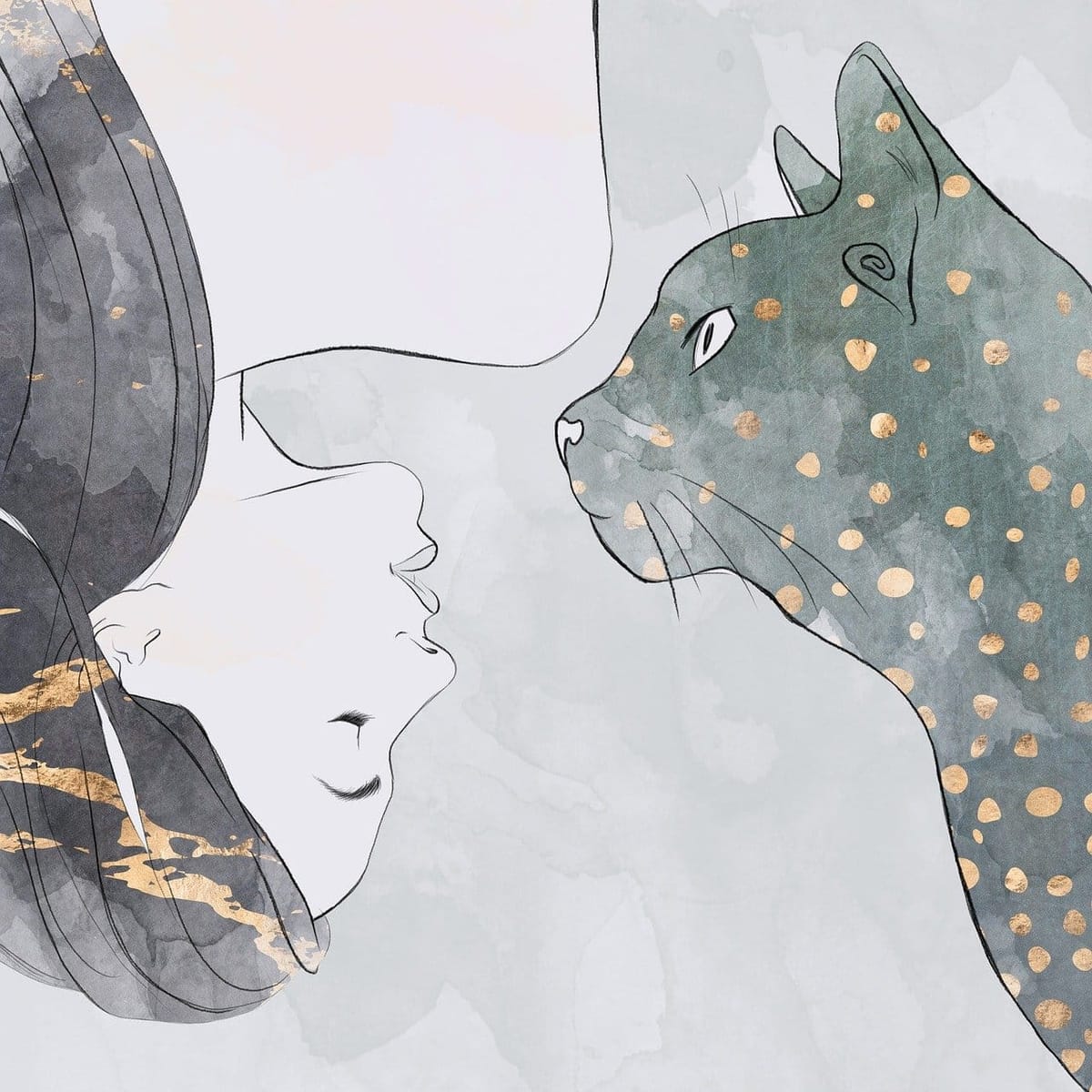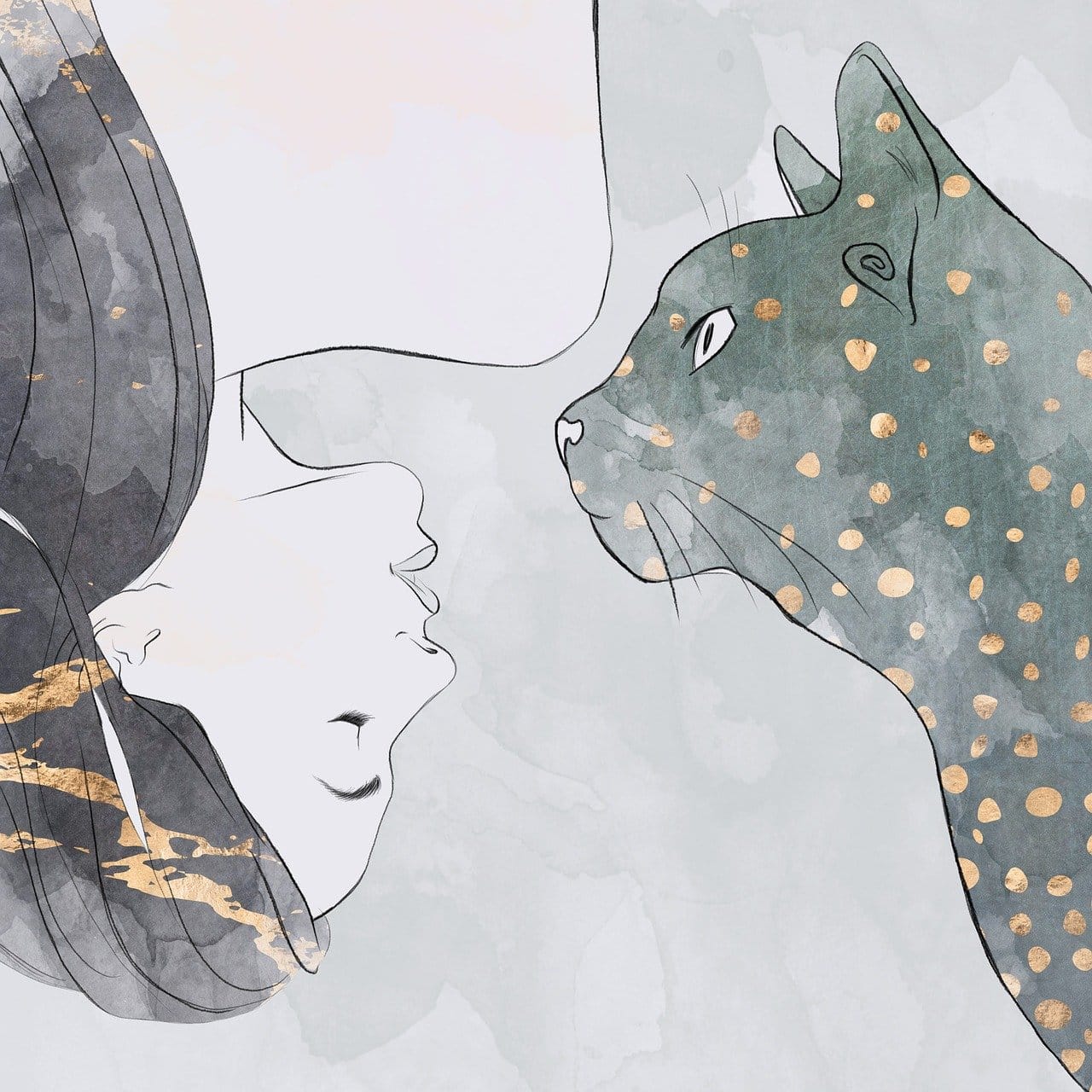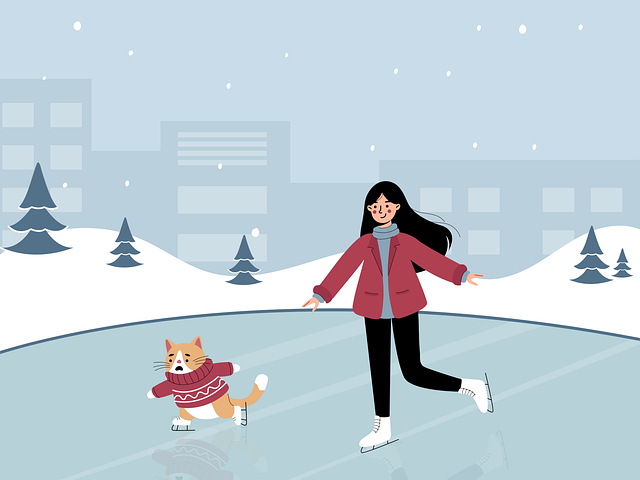
In the Filipino context, this would amount to saying "maarte" (or superfluous in English).
For the longest time, I thought that I had ADHD, until I learned that all my symptoms were actually properly fitted as being that of a Highly Sensitive Person. Dr. Elaine N. Aaron actually summarizes the traits of an HSP in this acronym:
- D: Depth of processing
- O: Overstimulation
- E: Emotional reactivity and empathy
- S: Sensing the Subtle
When I was younger, I thought I had some optical problems because extremely bright lights bother me and tend to drain me. I need to make extra energy protection before I go out in public. My days are "happy" when I have less plans; and when there's a lot going on, it becomes extra toll on my energy. People's chatters and murmurs in public sound very loud to my ears.
Because of these characteristics, people took me to be shy, and I adopted that to be my box too; however, I'm not shy. I am complicated because I am sensitive.
My highly sensitive cat
I've had 5 cats to date; but I would say that I have my very first highly sensitive cat. She's very reserved, but I can tell she's very intelligent.

When she was younger, she'd have slow adaptation to play things. She can very well play with her sibling, but she's got a slow intake to foreign things. She would look at the toy's structure and how it worked. It'll take her a good 2-3 minutes to assess "how to play" with the toy. This is nothing normal for kittens since kittens just jump and play at anything they see.
She doesn't operate on routine/schedule. Even when served her favorite food, it will take her a good 5-15 minutes to get ready to eat. Don't get me wrong, that's her favorite bowl, but she needs time to mentally and emotionally prepare for the eating.
Very sensitive to touch. Even when she's sleeping on my desk and she's aware that my hands can be close to her body, she'll jerk when my hand swipes her back or tail. Sometimes this awakens her too.
Sensitive to energy of the room. When I'm crying, angry, frustrated; and/or when me and my partner are in conflict, she will be first to leave the room. She's not nonchalant, but she's unable to process the sudden change of energy and will only come back after she's decided what her participation in the current situation will be.
Prefers silence and no new people. I call this trait the self-preservation skill. You can count on her to suddenly go into hiding when there's a new person in the room. She likes music because she's the only one who stays when I start my violin practice.

Observes everything. She's highly contemplative. You will always see her in meditative state and rarely becomes vocal until she needs something from us.
What this means?
Reading through these, it is very easy to misunderstand them. They may be taken as aloof (as we thought about her previously), and that she's incapable of showing affection. They may be seen as "disobedient", "stubborn", "aloof", "unsociable", "unaffectionate", etc.
This means, your pet needs more slowing down, more time to do anything or to adapt to anything. You will need to observe them more to understand where you see them rattled / vs calmed down. They may have some behavioral issues that's coming from unprocessed ideas/emotions.
You'll have to give them more tools that promote a sense of safety, like a carrier, a familiar smell, etc.
How to support them?
Provide a quiet place or a hiding place. You'll need to honor this boundary. Don't chase them into their favorite hiding place just because. If they go into their favorite place, that means you're off limits.
Honor their time. They can't be rushed. They can't be yelled at. If there's a recent happening at home, let them come out on their own time. Not eating at the same time as their siblings is also fine. Observe how they react, but don't neglect them if they are in a multi pet household. I would usually lay down her favorite food near her hiding place, but I won't force her to eat; but I make sure that she eats eventually.
When it comes to taking medications, I would approach her slowly. I make sure she's in a calm state before offering the meds/vitamins. As I hold the side of her head in my cupped left hand, I will wait a moment and say "ready?" before giving it to her in bouts of 0.25ml at a time.
Dumb down inputs. If you need to introduce more inputs, do it one at a time. Introduce new objects, sounds, smells, etc in a non threatening way. Observe their reactions too. If it's too much and they act strangely like running away and/or hissing/growling, then reintroduce the item at a later time.
I also don't change her food that frequently. We have a set of breakfast options and a different set of dinner options. I will rotate the flavors on a daily basis, but it's always within her favorite flavors. If there's been an outlier in recent events, I would sometimes not provide wet food and allow her to graze over kibbles instead to reset her taste buds.
Take care of the energy of the surrounding. My cat would have a smelly pee when she's been stressed, or she won't cover her poop. This will happen usually if people are coming in and out of the house and she wasn't prepared to receive them mentally / emotionally. How I would help her is usually to tell her a week before who the people coming over are and for how long and what's their purpose. I will remind her of these people coming over every day.
After a conflict, I will draw Reiki symbols to clear the energy of the house, or just do self Reiki. I will also sound the singing bowl to reset the energy of the house.
What if they're showing behavioral issues?
Sometimes when we miss a cue, they might exhibit weird behavioral issues. If that happens, promote more quiet in the home. Remove extracurricular happenings for a few days, no loud music / TV. Talk to them in a very calm voice, and encourage more playtime so they can reset their energy. Never yell at them because this will cause them panic and even more stress in their body.
I encourage you to always observe your highly sensitive pet. Determining what activities relaxes them and how they prefer to be handled or cuddled is key to responding well when they're in a rattled state.
When I didn't know about my cat's sensitivity, she would usually pee on me or on her bag whenever we have to go to the vet. I would be so mad, I would raise my voice. Until I figured out to let her know when it's time to go to the vet. I will have a different routine for her to prepare her emotionally that she's about to leave the house for the vet. Now, she's the best behaved cat and we have less friction now.

Worse comes to worst, here comes the value of having an animal communicator to reach out to your pet. Animal communicators such as myself can draw out details that affect their composure and offer a possible truce / solution.
Why did I get a pet who's very sensitive?
This is a great question for introspection. Your pet is inviting you to slow down and be more observant. Be in tuned with feelings and energy in order to work with them and understand where they're coming from.
When you unravel the mind of your sensitive pet, it can be very rewarding. By the time you get to this point, you would have been a more mature person. You would have been able to "be more in their shoes".


